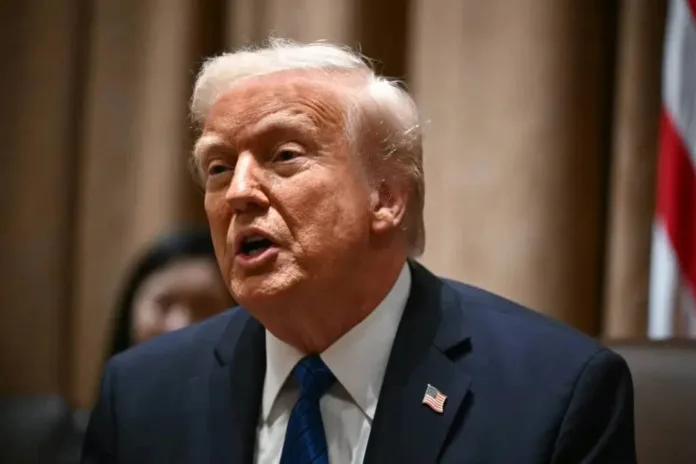President Donald Trump on Friday said the U.S. would begin unilaterally informing many of its trading partners of new tariff rates, rather than securing deals with the countries individually as the White House has repeatedly promised.
After his sweeping April tariff plan sent markets spiraling and set in motion a global trade war, Trump reversed course and issued a 90-day pause on the new duties for every affected country except China, opening the door for individual countries to negotiate deals with his trade team.
But in remarks at a business roundtable in the United Arab Emirates, the final stop on a multiday Middle East trip, Trump said that while “150 countries” were seeking to make deals with the U.S., it was “not possible to meet the number of people that want to see us.”
Instead, Trump said U.S. trading partners should expect individual letters from Treasury Secretary Scott Bessent and Commerce Secretary Howard Lutnick “at a certain point over the next two to three weeks,” in which they would be “telling people what they will be paying to do business in the United States.”
The president did not specify which countries would receive letters telling them what they would pay and which countries would still have the opportunity to negotiate. Trump slapped roughly 60 trading partners with so-called reciprocal tariffs of up to 50 percent in April, while imposing a baseline 10 percent tariff on all foreign imports.
Trump also touted a “fantastic trade deal” his administration reached with the United Kingdom earlier this month — the first of its kind since the launch of the administration’s aggressive tariff policy in April, which the president promised would usher in a string of agreements with U.S. trading partners. The U.K., however, did not face the higher reciprocal tariff, only the 10 percent baseline tariff as well as other sector-specific tariffs on autos, steel and aluminum.
Trump also noted on Friday the progress his team has made in reaching a trade deal with China, which he said is “in the process of continuing to be formed,” adding that “they wanted to make that deal very badly.”
Trade tensions between the U.S. and China cooled earlier this week when the two major economies agreed to slash their triple-digit tariffs on one another, which had steadily escalated as the countries ramped up a major trade war after Trump slammed China with high tariffs in April. The truce is only temporary, however — Trump set a 90-day deadline to reach a broader trade agreement with Beijing, meaning the sky-high tariffs could snap back in August.


